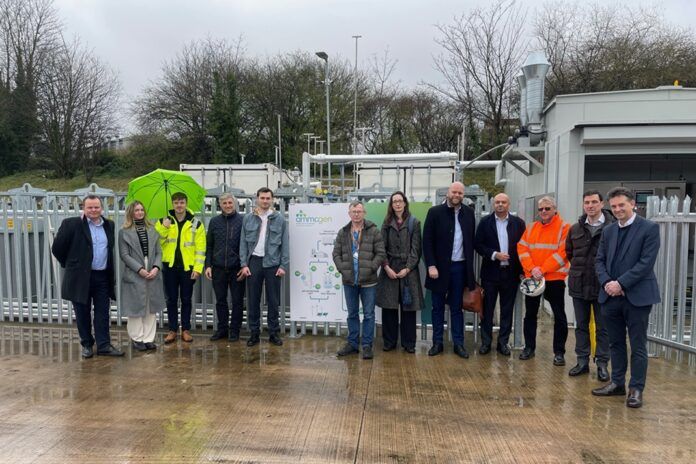
On Tuesday 12 March, consortium partners gathered at Tyseley Energy Park (TEP) to mark the launch of an ammonia to hydrogen conversion project.
A statement said the project is to drastically improve the efficiency, reliability, and economics of ammonia cracking. The project will deliver 200kg per day of transport-grade hydrogen, it noted.
The project will use ammonia as a vector for transporting hydrogen globally, it added, developing a novel ammonia cracker and purification technology to convert ammonia to hydrogen.
The statement added that the project also aims to position ammonia cracking within the UK political thinking through demonstration and crystallise follow-on opportunities to unlock trade corridors between the UK and the emerging global hydrogen market.
In collaboration with the Department for Energy Security and Net Zero, Gemserv, H2SITE, Equans, YARA, and the University of Birmingham, the Ammogen Consortium team said it is dedicated to driving forward hydrogen fuel supply chains in the UK and worldwide.
Alex Goody, chief executive of consortium lead Gemserv, said: “We are delighted to be part of the Ammogen consortium, working with DESNZ. This project is about finding solutions for the transportation of Hydrogen across vast distances, essential in underpinning the Hydrogen economy. Ammogen shows that ammonia can be part of the solution.”
Jose Medrano, technical director of H2SITE, added: “We are proud of having designed and constructed the largest ammonia cracker utilizing membrane reactor technology to produce fuel cell grade hydrogen. Ammogen project is a steppingstone for H2SITE, as it validates the fundamental technology we’ll use to scale to tons per day ammonia cracking in the next two years.”
The Ammogen project was selected through a UK government funding scheme to develop a £6.7m project.
